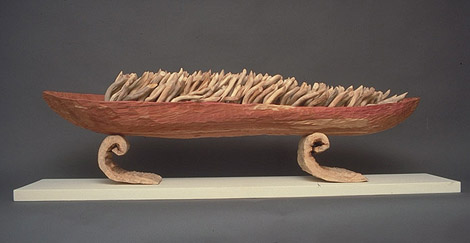When we put out the call for Envisioning the Future, we’d hoped for poems of radical resistance and rage against the machine poems. Driving this hope was a pressing question: Given the current state of our nation and our world, where will we be in the future? Still fighting the powers that be or will we have at last won that battle on all fronts including against racism, economic inequality and global warming? What kind of world have we built in the aftermath of our victory?
In the moments when we feel the most hopeless: rocked by a world that’s in a state of chaos, we often and by necessity turn to lyric, to poetry to make sense of and endure the madness happening around and to us. Think of Lauren Olamina, the young Black girl carving out an existence in apocalyptic times in Octavia Butler’s futuristic novel, Parable of the Sower. Olamina creates sacred texts to order her steps and build a world that can sustain as well as survive her. She writes, “People tend to give in to fear and depression. To need and greed. When no influence is strong enough to unify people they divide. They struggle, one against one, group against group, for survival, position, power. They remember old hates and generate new ones. They create chaos and nurture it. They kill and kill and kill until they are exhausted and destroyed, until they are conquered by outside forces or until one of them becomes a leader most will follow or a tyrant most fear.”
Envisioning the Future tasks women and non-binary poets to create their own blueprints for our future. Their work is necessary, wide-ranging and muscular. A reckoning of not just our past but our future selves. These poems tell us we can win this fight. They tell us what we have to look forward to if we don’t. They tell us victory means nothing without compassion and love. But most importantly, what all of these poems do is believe we can change for the betterment of all because resistance is futile if we don’t believe in the righteousness of our cause.
Saida Agostini is a a queer Afro-Guyanese poet and activist. She is the Chief Operating Officer for FORCE: Upsetting Rape Culture, a survivor led artist collective dedicated to resisting rape culture. She is also the founding member of the Rooted Collective, a liberatory gathering of Black LGBTQ people to define, dream, and expand on the ways we heal from oppression. Agostini's work is featured in Origins, the Black Ladies Brunch Collective's anthology, Not Without Our Laughter, The Baltimore Sun, pluck!, and The Little Patuxent Review. Agostini has received support for her poetry and resistance work from Cave Canem, the Leeway Foundation and the Greater Baltimore Cultural Alliance. Honors include the award of a 2017 Rubys Artist Project Grant to support the development of her first full-length collection of poems.
Venus Thrashwas a co-editor of Beltway Poetry Quarterly. She authored the poetry collection, The Fateful Apple (Hawkins Publishing, 2014), nominated for the 2015 Pen America Open Book Award. Her poetry has been published in Public Pool, Torch, The Arkansas Review, and in the anthology Resisting Arrest: Poems That Stretch the Sky. Thrash is the recipient of a 2016 writer’s residency at The Vermont Studio Center. She was a co-director of the Joaquin Miller Poetry Series, a Cave Canem graduate fellow and a Summer Seminar in Kenya and Fire and Ink scholar. To read more by this author: "Ritual," The Wartime Issue, Spring 2006; Five Poems, Summer 2007; Four Poems, It's Your Mug Anniversary Issue, Spring 2009.
